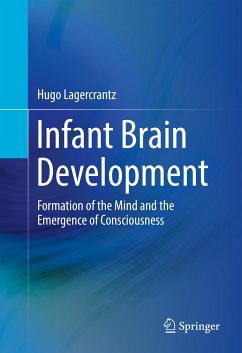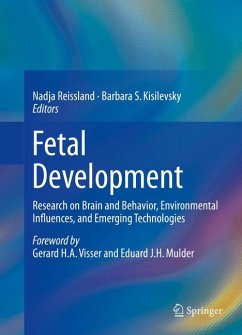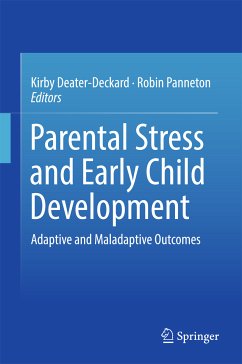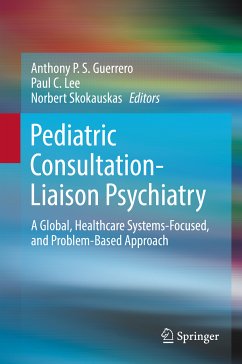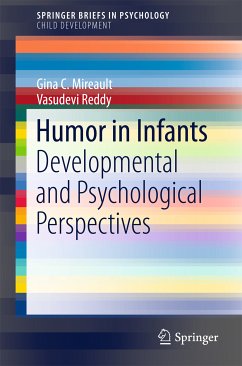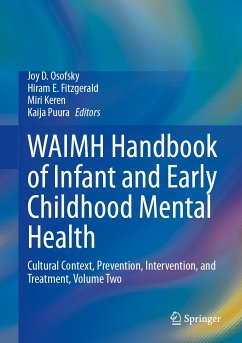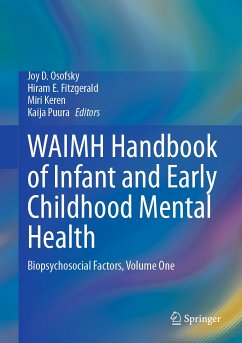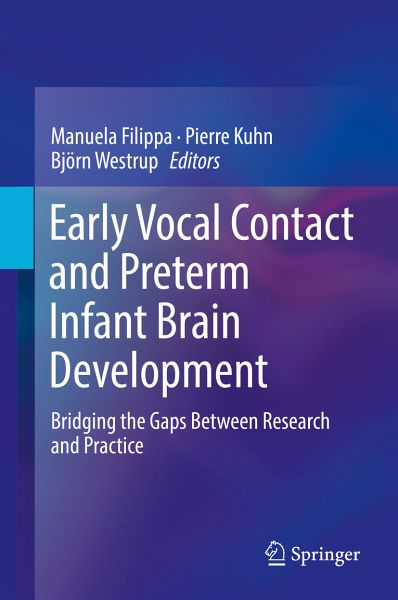
Early Vocal Contact and Preterm Infant Brain Development (eBook, PDF)
Bridging the Gaps Between Research and Practice
Redaktion: Filippa, Manuela; Westrup, Björn; Kuhn, Pierre
Versandkostenfrei!
Sofort per Download lieferbar
112,95 €
inkl. MwSt.
Weitere Ausgaben:

PAYBACK Punkte
56 °P sammeln!
This book synthesizes and analyzes research on early vocal contact (EVC) for preterm infants, an early healthcare strategy aimed at reducing the long-term impact of neonatal hospitalization, minimizing negative impacts of premature birth, and promoting positive brain development. Chapters begin by examining research on the maternal voice and its unique and fundamental role in infant development during the fetal and neonatal period. The book discusses the rationale for EVC with preterm infants, the underlying neurobiological mechanisms, and the challenges for infants' development. Subsequent ch...
This book synthesizes and analyzes research on early vocal contact (EVC) for preterm infants, an early healthcare strategy aimed at reducing the long-term impact of neonatal hospitalization, minimizing negative impacts of premature birth, and promoting positive brain development. Chapters begin by examining research on the maternal voice and its unique and fundamental role in infant development during the fetal and neonatal period. The book discusses the rationale for EVC with preterm infants, the underlying neurobiological mechanisms, and the challenges for infants' development. Subsequent chapters highlight various EVCs that are used in the neonatal intensive care unit (NICU), including direct talking and singing to preterm infants. In addition, the book also presents and evaluates early family-centered therapies as well as paternal and other caregiver voice interventions.
Topics featured in this book include:
- Early vocal contactand the language development of preterm infants.
- The maternal voice and its influence on the stability and the sleep of preterm infants.
- Parental singing as a form of early interactive contact with the preterm infant.
- Recorded or live music interventions in the bioecology of the NICU.
- The role of the music therapist to hospitalized infants.
- The Calming Cycle Theory and its implementation in preterm infants.
Early Vocal Contact and Preterm Infant Brain Development is an essential reference for researchers, clinicians and related professionals, and graduate students in developmental psychology, pediatrics, neuroscience, obstetrics and nursing.
Dieser Download kann aus rechtlichen Gründen nur mit Rechnungsadresse in A, B, BG, CY, CZ, D, DK, EW, E, FIN, F, GR, HR, H, IRL, I, LT, L, LR, M, NL, PL, P, R, S, SLO, SK ausgeliefert werden.



